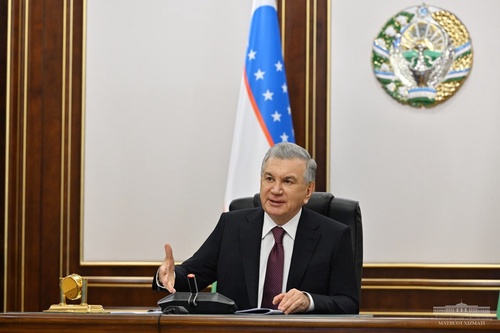Reported on plans in the food industry.
The head of state has been presented with information regarding ongoing work in the food industry and plans for 2025.
As the population continues to grow, ensuring food security has become an increasingly pressing issue. Global climate changes and a shortage of land and water resources create additional challenges for agriculture. Despite these obstacles, Uzbekistan harvested 9 million tons of grain, over 3 million tons of cotton, more than 16 million tons of vegetables and melons, 5 million tons of fruits and grapes, 4 million tons of potatoes, and more than 15 million tons of meat and milk this year. A total of 343 projects were implemented in the food industry.
Moreover, there are significant opportunities for localizing production. There is a need to increase the output of bread, meat and dairy products, vegetable oil, confectionery, and soft drinks.
Specific measures in these areas were discussed at the meeting.
In recent years, the export of confectionery has quadrupled, reaching 13 million dollars. The ability to directly import raw materials, packaging products, and labels has reduced production costs by 20 percent, significantly enhancing competitiveness.
The validity of these benefits expires on January 1, 2025. To support producers, a proposal to extend these benefits for an additional 2 years is being considered.
In the fat and oil industry, 408 enterprises have been opened, but a lack of raw materials in the country prevents them from operating at full capacity. If the export of fat and oil products is allowed, production could increase by 120 thousand tons, and an additional 240 thousand tons of feed meal could be produced.
The Deputy Prime Minister has been tasked with presenting proposals on this issue, taking market demands into account.
The number of national brands certified as "halal" is increasing, and they are actively exporting meat products to regional and Arab countries. However, the standard shelf life of sausage products is set at 3 months, of which 2 months are spent on delivery to foreign consumers. If the shelf life is aligned with European standards and extended to 4-12 months, production and export could be doubled. Consequently, it has been instructed to adapt the relevant standards to international standards.
To expand dairy production, the establishment of testing laboratories in Namangan, Samarkand, and Tashkent regions has been emphasized. There will be a practice of labeling such products indicating the use of natural or powdered milk in production.
The production of soft and non-alcoholic beverages, as well as natural juices from fruits and vegetables, is actively developing. Over the past five years, their export has increased ninefold, reaching 35 million dollars. However, due to existing tariffs on the import of tropical fruits and orange juice concentrate, the products are less competitive compared to goods from other countries. Therefore, it has been proposed to exempt the import of tropical fruit concentrate from customs duties.
At the meeting, responsible officials reported on mutually beneficial partnerships with industry enterprises within the framework of the "From Poverty to Prosperity" program. The President gave directives for further improving quality and expanding the scale of work to be carried out next year.


